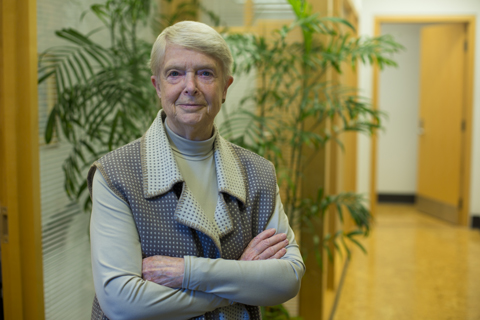What do you want people to know about The Office of the Ombudsperson? We’re here to assist people who have some problem with the university or with their treatment at the university. They can come here and expect we’ll be fair. We listen – that’s really important. We respond quickly. We’ll go to whichever campus – if there’s a meeting needed – or talk to them over the phone or by e-mail. We can’t always get people what they think they want when they first approach us, but we will try to make sure that they fully understand their options. A great deal of what we do is providing people with information.
But there’s a bigger goal too, beyond each individual situation you resolve? I like to think of the office as one of the university’s instruments for improving itself. We report to the governing council directly, not to the president or any member of the administration, so it makes us independent. Though we don’t have power to change policy or to make decisions for the university, we can write reports and make formal recommendations.
What is the process for ensuring confidentiality? We don’t contact anybody about a matter that is brought to us, unless the person who brought it gives us written consent to talk to the relevant administrators. Our role is not to advocate for the person who came, but to try to figure out what the issues are for both parties and see if we can help to find solutions that might be acceptable to both. The administrators we deal with are generally receptive and often want to talk about this issue and why it’s difficult for them too.
Is the office always driven by complaints? We have the power to identify things ourselves if we see them and occasionally that does happen. But it usually comes to our attention because it was something that was brought to us. So it’s very important that people come to us.
You’ve held many key roles at U of T, including associate dean of Arts and Science, principal of UTSC and Provost. Do you think of yourself as a trailblazer? There’s certainly a different presence of women in university administration now than there was when I started. People don’t usually set out to be academic administrators! As a student – I didn’t even know they existed. I like problem solving I guess and that’s the common thing that runs through all the roles I have had. That’s the way I think of administration: it’s solving problems so that the people who do the work at the university can do it under the best possible conditions.
I love the jobs I’ve had; I was really lucky to have a variety of things to do. It was fascinating because I got some sense of all the different parts of the university and the different cultures in each faculty and even department. There are common principles that people subscribe to but the type of work they do and the way they tend to function is different. I had colleagues who joined the university when I did and never did anything outside their department and that’s often the case –there’s nothing wrong with that but it’s been a special kind of experience that I’ve had.
How does your long experience at U of T help you in the role of ombudsperson? The policies involved in some of the issues that we deal with now – I recall the context of those policies being brought into place and how it’s changed. The initiatives that are most successful are not things that grow full-blown out of the head of a person in whatever office who says “This is what’s the university’s going to do” –they’re the ones that are informed by the ideas and experience coming from the grass roots.
You’ve been U of T’s ombudsperson for seven years. Over that time, have you seen the issues being brought to you changing? I decided this year I would write part of my annual report as a seven year perspective. And that’s one of the things I’m looking at. One would hope that if we’ve effected any improvements, then we would have fewer matters of that kind coming forward. But also, I know there have been quite a few matters that we’ve had closure on. For example, early on I recommended that there be a process for complaints for discrimination and harassment and since then, HR developed a document for employees and the vice-provost, students office developed a procedure for students.
It’s a utopian dream that everyone will walk around the university perfectly happy with the place. It’s never going to be perfect. Nevertheless it can keep trying to do things better. I don’t see it as a process that ends.





